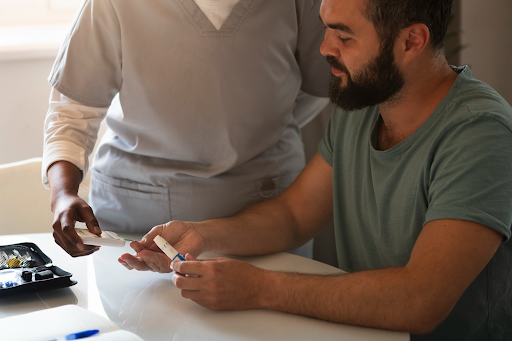A vasectomy is a common form of male sterilisation that provides a long-term solution for birth control. It is generally considered safe, effective, and less invasive than female sterilisation procedures. If you are considering a vasectomy in Remuera or a vasectomy in Tauranga Papamoa, understanding the safety measures, procedure details, and aftercare requirements can help ensure a smooth experience and reduce potential complications.
Understanding the Vasectomy Procedure
How a Vasectomy Works
A vasectomy involves cutting, sealing, or blocking the vas deferens—the tubes that carry sperm from the testicles to the urethra. By preventing sperm from mixing with semen during ejaculation, the procedure effectively prevents pregnancy. It is important to note that a vasectomy does not affect testosterone levels, sexual function, or libido. Men continue to produce semen, but it no longer contains sperm.
Types of Vasectomy Procedures
There are two main techniques for performing a vasectomy: the conventional vasectomy and the no-scalpel vasectomy.
Conventional Vasectomy
In a conventional vasectomy, the surgeon makes small incisions in the scrotum to access the vas deferens. The tubes are then cut and sealed using stitches, heat, or clips. This method is effective and commonly performed, but it may involve slightly longer recovery due to the incision.
No-Scalpel Vasectomy
The no-scalpel technique involves a small puncture in the scrotum instead of an incision. The surgeon gently opens the skin and accesses the vas deferens with minimal trauma. This method generally results in less bleeding, reduced risk of infection, and a quicker recovery. Many clinics in Remuera and Tauranga Papamoa offer this technique due to its efficiency and reduced discomfort.
Safety Considerations for Vasectomy
Pre-Procedure Evaluation
Before undergoing a vasectomy, it is essential to undergo a thorough medical evaluation. This may include:
- A review of your medical history and any pre-existing conditions.
- Physical examination of the testicles and scrotum.
- Discussion of your reproductive goals and confirmation that you understand the permanent nature of the procedure.
Patients are encouraged to ask questions about potential risks, alternative birth control options, and the procedure itself. A clear understanding of the process can help reduce anxiety and improve confidence in the decision.
Risks and Complications
While vasectomy is generally safe, like all surgical procedures, it carries some risks. Potential complications include:
- Infection: Rare, but possible at the incision or puncture site.
- Bleeding or hematoma: Accumulation of blood under the skin can cause swelling and discomfort.
- Sperm granuloma: A small, firm lump may form if sperm leaks from the vas deferens.
- Pain or discomfort: Mild to moderate discomfort may occur for a few days or weeks after the procedure.
- Recanalisation: Very rarely, the vas deferens may reconnect, which could result in fertility restoration.
Most complications are minor and manageable. Choosing an experienced and qualified surgeon in Remuera or Tauranga Papamoa reduces the risk of adverse outcomes.
Preparing for a Vasectomy
Lifestyle and Health Considerations
Prior to the procedure, patients should follow certain guidelines to ensure safety and effectiveness:
- Avoid medications that increase bleeding risk, such as aspirin or certain anti-inflammatory drugs, if advised by your doctor.
- Arrange transportation, as some men may experience mild discomfort that makes driving immediately after the procedure uncomfortable.
- Shave the scrotal area if instructed, although many clinics do this themselves.
It is also recommended to wear supportive underwear or a jockstrap after the procedure to minimise swelling and provide comfort during recovery.
Mental Preparation
Understanding the permanent nature of vasectomy is crucial. Although reversal procedures exist, they are complex and not always successful. Patients should be confident in their decision and discuss any concerns with their healthcare provider.
Post-Procedure Care and Recovery
Immediate Aftercare
After a vasectomy, patients can usually return home on the same day. Key recommendations for the first few days include:
- Apply ice packs to the scrotum to reduce swelling and discomfort.
- Limit physical activity, particularly heavy lifting and exercise, for about a week.
- Wear supportive underwear continuously for at least the first 48 hours.
- Keep the incision area clean and dry to prevent infection.
Pain or swelling is usually mild and can be managed with over-the-counter pain relief as recommended by your doctor.
Follow-Up and Fertility Checks
It is important to remember that a vasectomy does not provide immediate sterility. Sperm may remain in the vas deferens for several weeks. Patients are usually advised to continue using another form of contraception until a sperm count test confirms zero sperm in the semen.
A follow-up appointment typically occurs 6 to 12 weeks after the procedure. The doctor may request one or more semen analyses to ensure that the vasectomy has been successful.
Long-Term Care
Once a vasectomy is confirmed to be effective, no further ongoing treatment is usually required. Regular self-examination of the testicles is encouraged to monitor for any unusual lumps, swelling, or pain. Any concerns should be discussed promptly with a healthcare provider.
Lifestyle Considerations After Vasectomy
Sexual Activity
Sexual function generally remains unaffected after a vasectomy. Most men can resume sexual activity within a week, provided there is no significant discomfort. It is important to continue using contraception until the sperm count confirms sterility.
Physical Activity
While light physical activity may resume within a few days, patients are advised to avoid strenuous exercise or heavy lifting for at least a week. Gradual return to normal activities is recommended to prevent complications such as bleeding or swelling.
Emotional Wellbeing
Some men may experience emotional changes or concerns about permanent sterility. Open communication with partners and seeking guidance from a healthcare provider can help manage these feelings.
Choosing the Right Clinic
Selecting a reputable clinic for a vasectomy in Remuera or a vasectomy in Tauranga Papamoa is essential for safety and positive outcomes. Consider the following:
- Experience of the surgeon: Look for a surgeon specialising in male sterilisation procedures.
- Clinic reputation: Read reviews and check patient testimonials.
- Post-procedure support: Ensure the clinic provides clear aftercare instructions and follow-up appointments.
Choosing a trusted and experienced provider helps minimise risks and ensures professional care throughout the process.
Conclusion
A vasectomy is a safe and effective method of long-term contraception for men who are certain about not wanting future children. By understanding the procedure, preparing adequately, following aftercare guidelines, and choosing a reputable clinic, patients can reduce risks and promote a smooth recovery. Whether opting for a vasectomy in Remuera or a vasectomy in Tauranga Papamoa, taking these steps ensures a well-informed and confident experience.
With careful planning and proper medical support, a vasectomy can provide peace of mind and a reliable form of birth control while maintaining normal sexual and hormonal function.
Keep an eye for more latest news & updates on Tribune!



